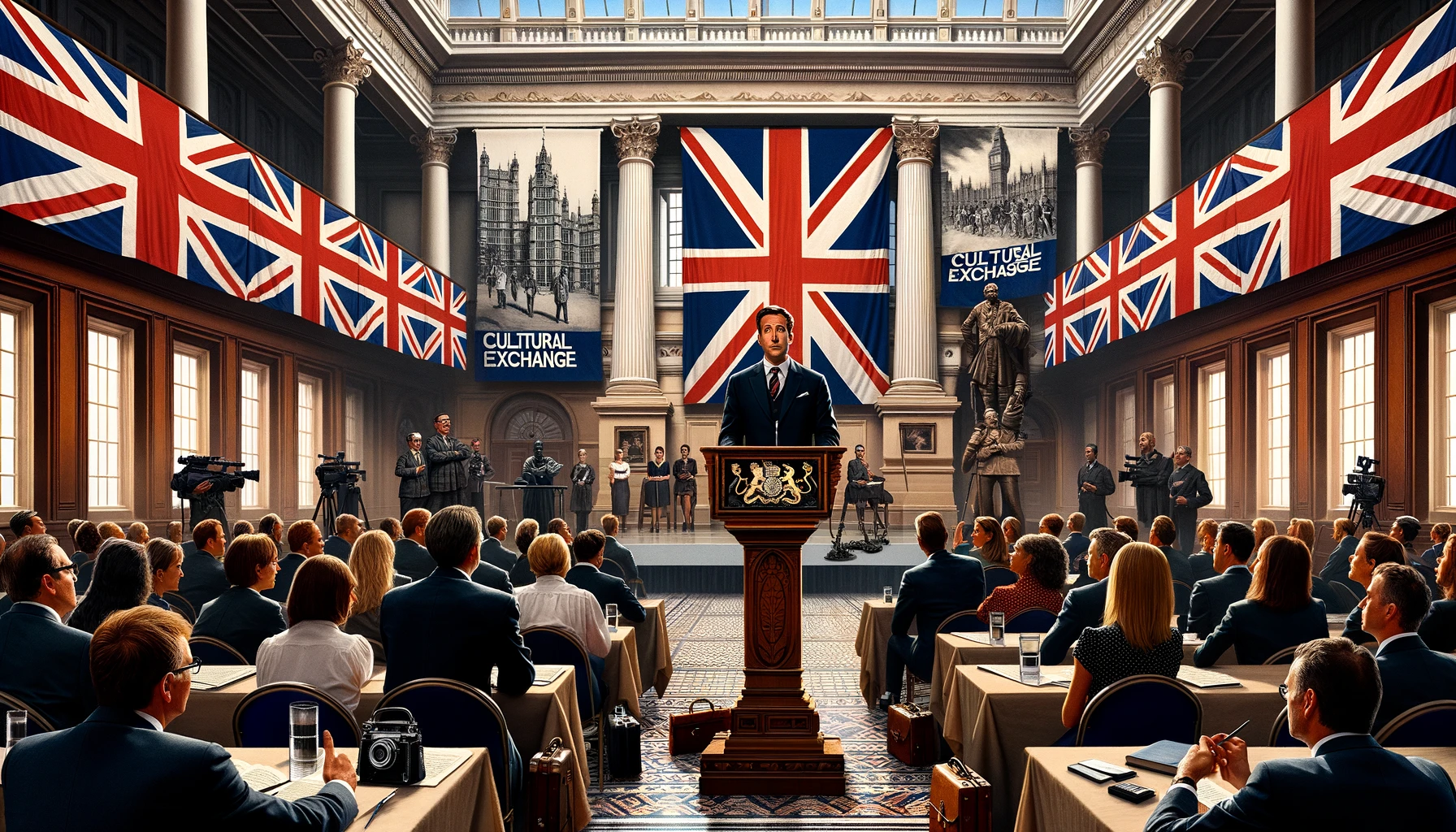In a satirical twist that seems to leap from the pages of a dystopian novel on historical revisionism, the UK’s Education Secretary has purportedly announced an ambitious plan to soften the nation’s image of its colonial past, branding it instead as a “cultural exchange.” This bold reinterpretation, critics argue, stretches the bounds of credulity and veers dangerously close to rewriting history.
“It’s high time we focused on the positive aspects of our shared history,” the fictional Education Secretary, Maximilian Fabricate, is quoted as saying. “The British Empire was not about domination and exploitation, but rather a mutual exchange of culture, customs, and commodities. Think of it as an early form of globalization.”
This controversial stance has ignited a firestorm of debate, with historians, educators, and the general public divided over the implications of such a narrative shift. Detractors accuse the government of attempting to gloss over the darker chapters of British imperialism, including forced labor, economic exploitation, and widespread violence, under the guise of cultural reciprocity.
“To suggest that centuries of colonial rule were akin to a cultural exchange program is not only misleading, it’s dangerously naive,” commented Professor Cassandra Truth, a noted historian specializing in the era of British imperialism. “This isn’t about highlighting mutual benefits; it’s about obscuring the systemic abuses that underpinned the empire.”
In response to the backlash, satirical activists have launched a campaign dubbed “The Real Cultural Exchange Initiative.” This mock program seeks to “educate” the public about the true nature of colonial interactions through a series of humorous yet pointed installations and performances. One proposed exhibit, “Tea and Sympathy: The Beverage That Built an Empire,” aims to highlight the impact of the tea trade on colonized nations, juxtaposing British tea culture with the labor exploitation that supported it.
Meanwhile, educational materials being prepared for the new curriculum have been leaked, revealing chapters with titles such as “The Empire Strikes Back: How British Colonialism Paved the Way for Global Harmony” and “The Sun Never Sets on British Friendliness.” These texts have been met with ridicule and disbelief, with critics lampooning their attempts to recast historical narratives.
As this satirical story unfolds, it serves as a stark reminder of the ongoing debates surrounding historical memory and the portrayal of colonialism in education. By framing the British Empire’s legacy as a benign cultural exchange, the fictional narrative underlines the dangers of whitewashing history and the importance of confronting uncomfortable truths.
While the notion of the UK’s colonial past as a “cultural exchange” is clearly a work of satire, it reflects real-world tensions over how nations remember and teach their histories. In the face of such controversies, the importance of critical thinking and historical accuracy has never been more apparent, ensuring that the lessons of the past are neither forgotten nor misrepresented.

